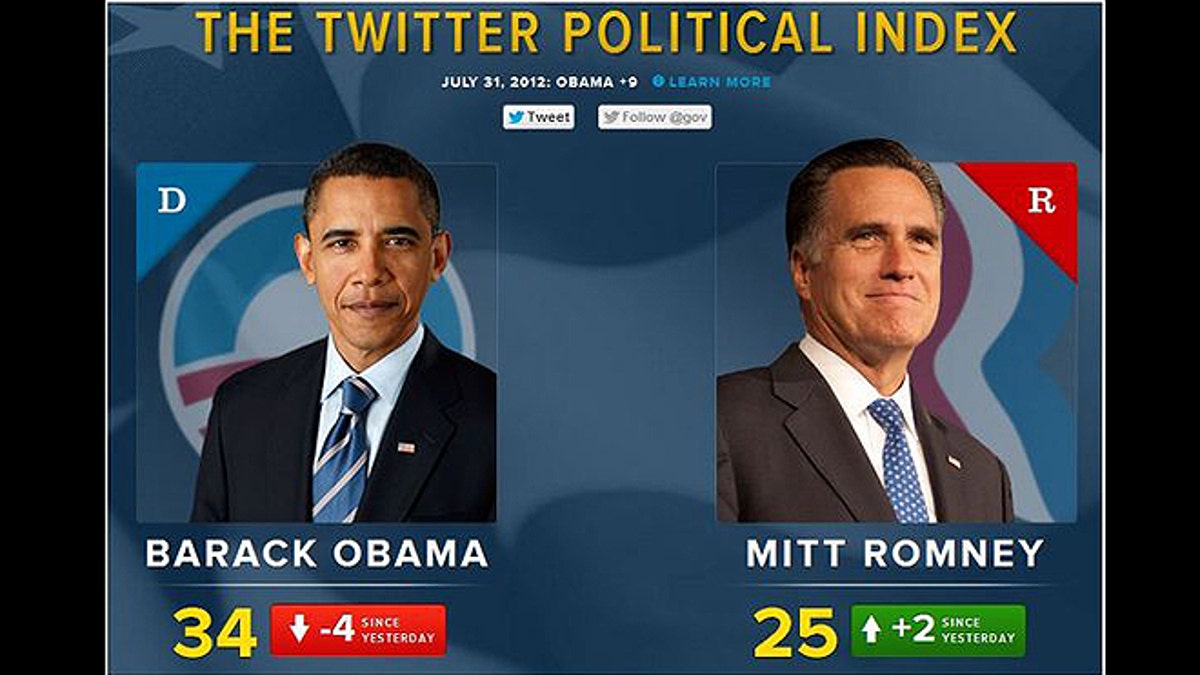
Can "sentiment" help news outlets predict elections? (Twitter)
Twitter launched its Political Index on Wednesday, which provides a daily snapshot of public sentiment for President Obama and rival Mitt Romney.
Each day, the index evaluates and weighs the sentiment of tweets mentioning Obama or Romney relative to the more than 400 million tweets sent on all other topics. For example, a score of 73 for a candidate indicates that tweets containing his name or account name are on average more positive than 73 percent of all Tweets. Currently, Obama scores a 34 compared with Romney at 25, out of a possible 100.
But what does it mean? Similar to an approval rating from an opinion poll, the daily index runs from zero to 100: a 50 rating is neutral, anything above that is positive, below is negative. The data analysis is provided by Topsy Labs, which claims it can identify positive or negative tweets, correctly interpret sarcasm and humor and even figure out where Twitter users live.
Pollsters representing both sides of the aisle who worked on the project said that Twitter isn't politically biased. A skew toward younger and more liberal users is offset by conservatives who tend to be more active on Twitter.
[pullquote]
Twitter in a blog post likens its index to radar or a satellite that when used with a older tools, such as a thermometer and barometer, can better predict the weather. "The index joins traditional methods like surveys and focus groups to tell a fuller story of political forecast," Twitter said. It is designed to add new insight rather than replace traditional polling. [Social Media Flops at Predicting Super Tuesday Results]
USA Today has given the Twitter Political Index a home in its Election '12 section, calling the index the Twitter Election Meter.
Twitter also said that tweets can pick up on changes to public support that will later be reflected in traditional polls. For instance, Obama's Twitter score fell more quickly than his poll numbers after Osama bin Laden was killed. Eventually, the traditional polls showed a drop in support when people turned their attention back to the economy.
Perhaps more telling are the points gained and lost over the past 24 hours, which Twitter includes next to each candidate's score. USA Today does not display this data.
But traditional polling companies have reservations about putting too much weight on the Twitterverse. "My concern is, who are these people?" Frank Newport, Gallup's editor-in-chief, said in a USA Today report. "I don't think anyone has figured out whether it's truly useful.''
- 8 More Hilarious Google Searches
- What Can Get You Kicked Off Twitter?
- Obama Hate Speech Spreads on Facebook
Copyright 2012 TechNewsDaily, a TechMediaNetwork company. All rights reserved. This material may not be published, broadcast, rewritten or redistributed.
